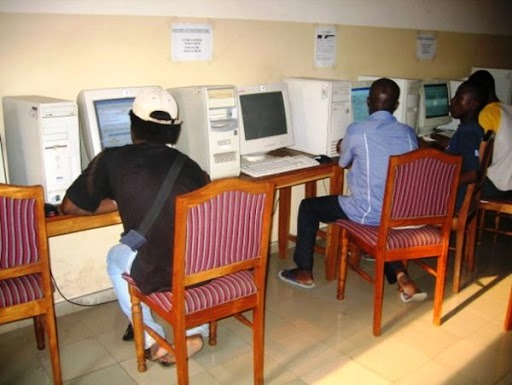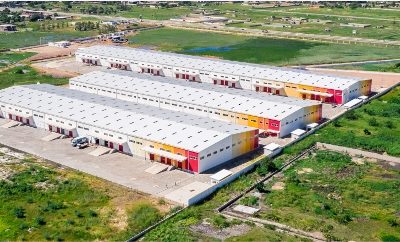Cybercafés are in decline in Nigeria owing to high costs, competition, and changing consumer habits, reports EUNICE AYEGBOYIN. Additional report: ROBERT OFFOR-AMANKWAH.
Cybercafés, once bustling hubs of internet access, are rapidly disappearing across Nigeria. Despite attracting crowds of students, entrepreneurs, and workers daily, the business model is crumbling under immense pressure. In the past five months, more than a dozen cybercafés have gone up for sale, signaling a significant downturn. Even previously thriving cafes in prime locations, such as the one near Ojuelegba used by students from the University of Lagos, have been replaced by other businesses.
Cybercafés in Lagos, the country’s commercial capital, were once ubiquitous, especially in high-demand areas like Victoria Island and Ikeja. However, despite the high foot traffic, café owners report that these businesses are far from profitable. Factors such as high operating costs, unreliable infrastructure, and competition from home internet access have contributed to their decline.
Why Cybercafés are Failing
The major reason behind the closure of these internet cafes is the overwhelming operational costs. In Lagos, where power outages are frequent, café owners rely on expensive generators for up to 18 hours a day. Additionally, the cost of bandwidth is prohibitive. In Nigeria, internet bandwidth is up to ten times more expensive than in the United States, due to the reliance on costly satellite connections. This is in contrast to countries like South Africa and Egypt, where better infrastructure allows for cheaper internet access.
The capital required to launch a cybercafé is also significant. Setting up a medium-sized café with around 20 computers costs approximately 5 million Naira ($47,000), with bandwidth and equipment accounting for 60% of the total expenditure. Despite these high investments, the return on investment is meager, with some cafés barely covering their operating costs.
The Role of Competition and Technology
The intense competition between cafes also plays a significant role in their demise. New cybercafés that boast faster download speeds and better facilities often steal customers from older establishments. However, they, too, soon fall victim to the same high costs and low margins. Many cybercafés advertise “dedicated bandwidth” to attract customers, but in reality, most operate on shared bandwidth, which leads to slow internet speeds and frustrated customers.
The rise of personal internet access at home and in offices is another factor contributing to the downfall of cybercafés. Private telecommunications operators (PTOs) offer bundled voice and internet services at competitive prices, and with more households installing computers, the need for cybercafés is steadily declining. Many consumers prefer the faster and more convenient experience of browsing the web at home, even if it costs a bit more upfront.
The Future of Cybercafés
The growth of home internet access has already decimated the café industry in developed countries like the United States and is increasingly doing the same in Nigeria. South Africa, for example, has seen a sharp decline in cybercafés as more citizens gain internet access at home.
Despite these challenges, there is a glimmer of hope for the survival of cybercafés in Nigeria. Internet-driven services like checking WAEC and JAMB results, introduced less than two years ago, have the potential to drive traffic back to cafes. Additionally, if e-government services become more widespread, they could provide a lifeline for the struggling industry.
However, one of the most significant issues holding cybercafés back is the lack of proper management knowledge. Over 85% of cybercafé operators in Nigeria, according to industry experts, have little understanding of how to run the business effectively. This has led to many cafés folding soon after opening, as inexperienced operators fail to navigate the complex and competitive market.
Lessons from Ghana’s BusyInternet
Ghana presents a unique success story in the otherwise grim cybercafé landscape. Mark David, a Welsh entrepreneur, launched BusyInternet in Accra, offering more than just basic internet services. The café has become a business incubator and learning hub for budding entrepreneurs, demonstrating that with the right business model and added value, cybercafés can still thrive in Africa.
In conclusion, while the era of the traditional cybercafé in Nigeria may be coming to an end, there is still potential for these businesses to survive by adapting to changing consumer behaviors and focusing on offering unique value-added services. The challenges are immense, but for those who can innovate and manage their operations efficiently, there may yet be a future in this once-thriving industry.































